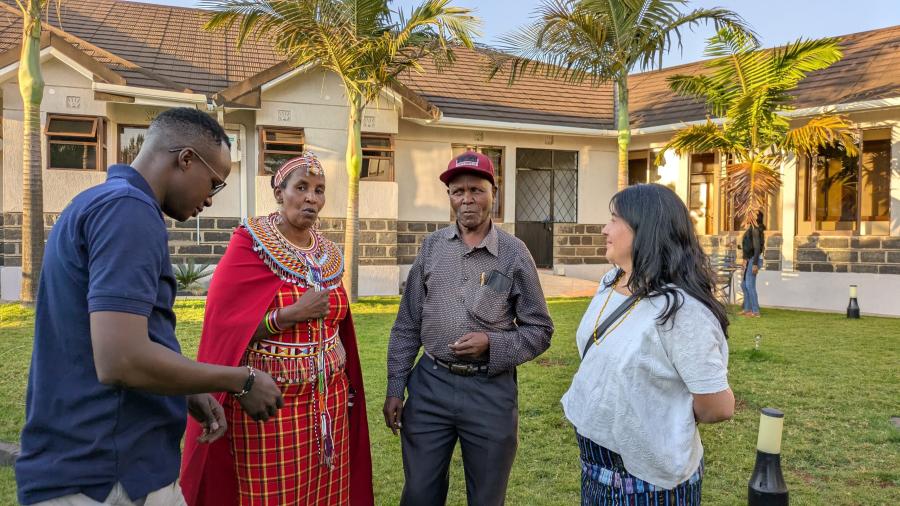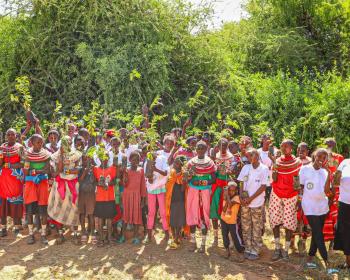The Samburu of Laikipia County in Kenya are facing eviction from their traditional grazing grounds.
Kenya’s Secretary for Internal Security and Coordination of National Government, Joseph Kasaine Ole Nkaissery, issued an ultimatum on November 25, 2016 for the eviction of Samburu from Laikipia cattle grazers on November 28. His statements come amidst high tensions after recent clashes between Samburu and Turkana communities over grazing lands and upcoming Kenyan elections.
The Samburu believe the evictions are related to purposeful disenfranchisement of the population to allow for the current political party to regain votes in 2017 elections. The district of Laikipia North is currently the only constituency with a Maa speaking Member of Parliament, the language spoken by the Maasai and Samburu of Kenya.
Military were deployed into the area on November 26, after a rally was organized in Laikipia with Samburu and Maasai traveling from across Kenya to show their solidarity with local communities. When they arrived, however, they met a huge police deployment and were told the community meeting was banned. The community members agreed to postpone their meeting to avoid violence from police.
Militarized police have now been deployed across the Laikipia district. Over the weekend Samburu communities locally and in diaspora organized rapidly to raise funds to rush a court order to stop the armed operations planning to evict thousands.
On November 28, the community's lawyer Dr. Khaminwa successfully argued for a court order to stop eviction operations until a court hearing on December 20. Nkaissery will appear in court to defend the legality of the planned evictions.
The Samburu, a semi-nomadic pastoralist community, have frequently been attacked by state police forces and evicted from their homes and grazing lands, despite national and international laws guaranteeing their right to their lands and livelihoods. In 2010. Cultural Survival produced an investigative report entitled, “When the Police are the Perpetrators” which revealed the extent of police brutality against the Samburu.
The Maa speaking community in diaspora have issued a statement condemning the proposed evictions, directed to Kenyan president Uhuru Kenyatta.
Based on Cultural Survival’s investigative report conducted in 2009 and 2010 regarding police violence against Samburu people in Samburu East and Isiolo Districts, Cultural Survival, with the support of the Maa Speaking Community in Diaspora, issues the following recommendations to Kenyan authorities:
- Disarmament for the reduction of inter-ethnic violence is ineffective without the guidance of the pastoralist communities traditional elders, government appointed chiefs, district peace committees, and human rights organizations all working together.
- Ensure police forces receive proper training and supervision. When this is lacking, police have historically committed extra-judicial killings, rapes, beatings, theft, arson, and intimidation.
- A community-based process for resolving disputes should be implemented.
- Investigate and arrest individuals suspected of cattle theft and cease to conduct punitive assaults on entire communities or individuals at random.
- Recognize the rights of citizens to monitor human rights violations in their communities, guarantee their safety, and take immediate action to address any reports of human rights violations.
- Under no circumstances should Indigenous communities, including the Samburu who self-identify as such, be removed from their homes and traditional grazing grounds without their free, prior, informed consent, as established in the UN Declaration on the Rights of Indigenous Peoples.



